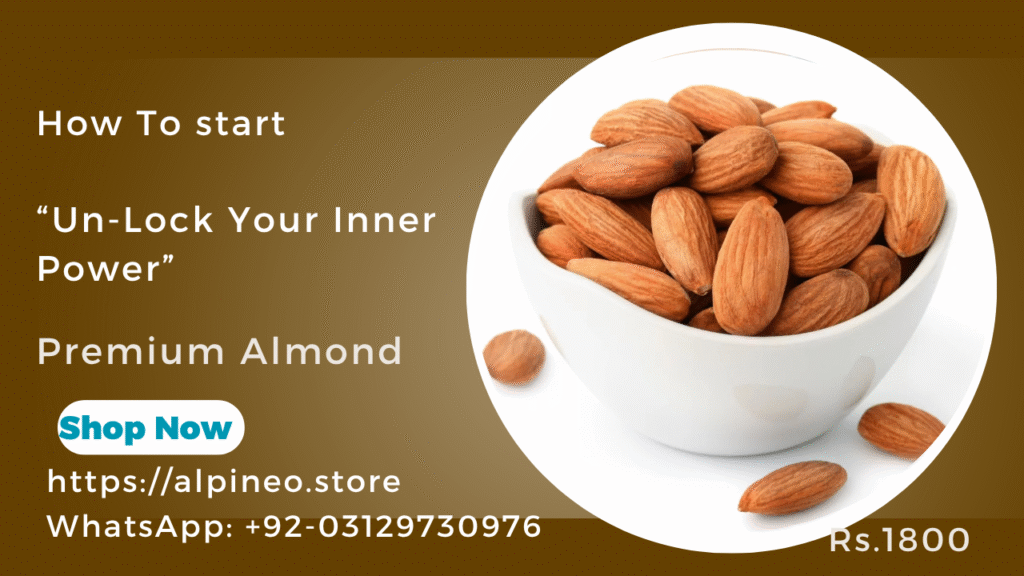
Unlock the nutritional power of dry fruits! Explore evidence-based benefits for heart, gut & energy, learn which varieties are best, get practical serving ideas, and understand important cautions like sugar content. Start your 7-day plan today.
Introduction
Dry Fruits, Big Health: Why These Tiny Nibbles Deserve a Daily Dose
You’re rushing out the door, stomach growling. You need something fast, nutritious, and satisfying. Instead of reaching for a processed bar, what if you could grab a handful of nature’s candy—packed with fiber, vitamins, and antioxidants?
Welcome to the powerful world of dry fruits. Often mistaken for just a sweet treat, dried fruits are concentrated packages of nutrition that can play a vital role in a healthy diet. But with questions about sugar and processing, it’s important to know the facts.
This ultimate guide will explore the science-backed benefits of dried fruits, show you how to choose the best varieties, and provide simple ways to weave them into your meals.
What Exactly Are Dry Fruits?
Dry fruits are simply fresh fruits that have had almost all of their water content removed through drying methods like sun-drying, air-drying, or using specialized dehydrators. This ancient preservation technique concentrates the fruit’s flavor, sweetness, and nutrients, making them shelf-stable and portable.
Common varieties include:
- Raisins: Dried grapes
- Apricots: Dried apricots
- Dates: The sweet fruit of the date palm
- Figs: Dried figs
- Prunes: Dried plums
- Cranberries, Blueberries, Mango, Cherries
- Goji Berries: A nutrient-dense berry popular in traditional medicine
How Drying Affects Nutrition:
The process concentrates the fruit’s natural sugars and calories by volume, but it also amplifies its fiber, vitamin, and mineral content. For instance, one cup of grapes has about 104 calories and 1.4 grams of fiber, while one cup of raisins has about 434 calories and 5.4 grams of fiber. Freeze-drying preserves more heat-sensitive nutrients like vitamin C, while sun-drying or dehydrating may reduce them slightly.
Key Health Benefits: More Than Just a Sweet Snack
The research is clear: incorporating dry fruits into a balanced diet offers a multitude of health advantages.
- Heart Health Heroes: Many dried fruits are rich in potassium, which helps regulate blood pressure, and fiber, which helps manage cholesterol levels. Studies have linked regular consumption of raisins and prunes to improved cardiovascular markers.
- Digestive Wellness: This is where dried fruits truly shine. Prunes are famous for their natural laxative effect, thanks to their fiber and sorbitol content. Figs and dates are also excellent for promoting regularity and feeding beneficial gut bacteria.
- Antioxidant Powerhouses: Dried fruits are loaded with antioxidants like polyphenols and carotenoids. These compounds fight oxidative stress and inflammation in the body, which is linked to chronic disease and aging. Goji berries and dried berries lead the pack in this category.
- Sustained Energy & Satiety: The combination of natural sugars for quick energy and fiber for slow digestion makes dried fruits a fantastic snack to curb hunger and prevent energy crashes. They’re a favorite among athletes for a pre- or post-workout boost.
- Bone, Skin, and Immune Support: Specific dried fruits provide key micronutrients. Dried figs offer calcium, apricots are packed with vitamin A for skin and eye health, and prunes contain vitamin K and boron, which are crucial for bone density.

A Breakdown of Nutritional Superstars
Not all dried fruits are created equal. Here’s what makes each variety unique:
- Raisins: Excellent source of iron, potassium, and boron. Great for energy and heart health.
- Dates: Provide quick energy, fiber, potassium, and magnesium. A natural sweetener in recipes.
- Dried Apricots: Incredibly high in vitamin A (beta-carotene) and potassium. Support vision and immune function.
- Dried Figs: One of the best plant-based sources of calcium, plus plenty of fiber.
- Prunes: The go-to for digestive health, thanks to fiber and sorbitol. Also rich in vitamin K.
- Goji Berries & Dried Berries: Exceptionally high in antioxidants (Vitamin C, Zeaxanthin) that support immunity and eye health.

How to Incorporate Dry Fruits Into Your Daily Life
The possibilities are endless! Here are some simple ideas:
- Smart Snacking: Keep single-portion bags (approx. 1/4 cup) in your car, desk, or gym bag. Create a custom trail mix with nuts and seeds for a balanced fat-protein-fiber combo.
- Breakfast Boost: Stir raisins, chopped dates, or dried cranberries into your oatmeal, yogurt, or cereal. Blend a medjool date into your smoothie for natural sweetness.
- Salads & Savory Dishes: Rehydrate dried apricots or cherries in warm water and add them to grain salads, quinoa bowls, or even tagines and curries for a sweet-and-savory twist.
- Healthy Baking: Use pureed dates as a sugar substitute in energy balls, bars, and muffins. Add dried fruits to bread, scones, and cookies.
Important Cautions and Considerations
While incredibly healthy, mindful consumption is key.
- Portion Control is Everything: Because the water is removed, it’s easy to overeat. A serving is typically a small handful or 1/4 cup. This helps manage calorie and sugar intake.
- Beware of Added Sugars: This is the biggest pitfall. Always check the ingredients list! Avoid varieties that list “sugar,” “cane juice,” or “fruit juice concentrate.” Choose ones that only contain the fruit itself.
- For People with Diabetes: Dried fruits have a higher glycemic index than fresh fruit. Portion control is essential, and it’s best to pair them with a source of protein or fat (like a handful of nuts) to blunt the blood sugar spike.
- Sulfites: Some dried fruits (like apricots, golden raisins) are treated with sulfites to preserve color. If you’re sensitive, look for naturally brown “unsulfured” options.

Storage, Purchasing, and FAQ
Storage Tips: Keep dried fruits in airtight containers in a cool, dark, and dry place. For longer-term storage, keep them in the refrigerator. This prevents them from drying out further or becoming too hard.
Buying Guide:
- Read the Label: The only ingredient should be the fruit itself. Visit for Shop https://alpineo.store/shop/
- Organic vs. Conventional: Consider going organic for thin-skinned fruits like raisins and apricots to minimize pesticide exposure.
- Buy in Bulk: This is often more cost-effective. Just ensure you have proper storage containers.
Frequently Asked Questions (FAQ)
Q: Are dried fruits healthy for weight loss?
A: Yes, in moderation. Their fiber promotes feelings of fullness, which can help you eat less overall. However, because they are calorie-dense, sticking to a small portion is crucial for weight management.
Q: Can I give dried fruits to my kids?
A: Absolutely! Chopped raisins or apricots are a great nutrient-dense snack. Be cautious with whole dried fruits for very young children due to a potential choking hazard. Always supervise and offer age-appropriate sizes.
Q: Is dried fruit as good as fresh fruit?
A: They are both healthy but serve different purposes. Fresh fruit has more water and vitamin C. Dried fruit is more calorie-dense and portable. The best diet includes a variety of both!
Your 7-Day Dry Fruit Kickstart Plan
Ready to put this into practice? Here’s an easy plan.
- Day 1: Add 1 tbsp of raisins to your morning oatmeal.
- Day 2: Snack on 3 dried apricots with 10 almonds.
- Day 3: Blend one pitted date into your post-workout smoothie.
- Day 4: Add 2 chopped dried figs to your salad at lunch.
- Day 5: Have 2-3 prunes as an afternoon snack for digestive health.
- Day 6: Make a simple trail mix with 2 tbsp of mixed dried fruit and 2 tbsp of walnuts.
- Day 7: Experiment! Add dried cherries to a chicken salad or mango to a curry.
Listen to your body and adjust portions based on your energy needs.
Dry fruits are a testament to the idea that good things often come in small packages. By choosing wisely and mindfully, you can unlock a powerful, convenient, and delicious tool for supporting your overall health and wellness.
